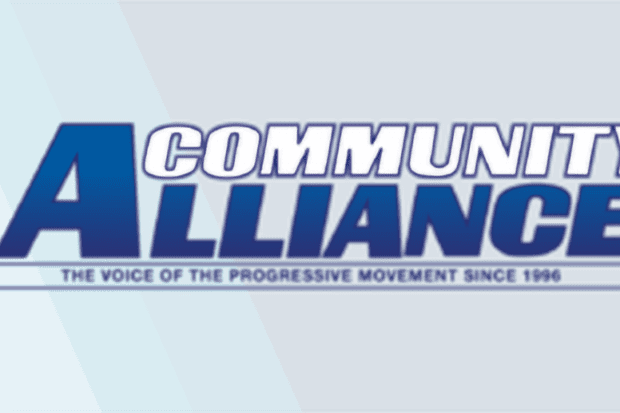
The building on the corner of Oak Avenue and Willis Street in Visalia is quiet now. The metal gate is chained. A sun-faded sign still reads St. Mercy Free Clinic. The windows are dark, and the bench where patients once waited under the weight of fever and fatigue is empty.
To those who know, that corner isn’t just where a clinic stood. It’s where a legacy has ended.
Before there was a clinic, there was a kitchen. In 1985, the Sisters of Sacred Heart—a small Franciscan order of nuns known for a working-class ministry—arrived in Visalia. They settled in the city’s neglected south side and rented a crumbling parish hall next to a closed school. They called it The Mercy Table.
At the time, Visalia had no formal services for the city’s growing homeless population. Emergency food banks were rare. Hot meals were even rarer. The Sisters didn’t sit on idle hands. They opened the doors, set out plastic chairs and served what they had—to anyone that came. There were no sign-in sheets. No ID checks. No sermons.
The people came.
By 1987, they had added a walk-in clinic in the adjacent bungalow—three exam rooms, a waiting area and a cramped supply closet packed with gauze, blood pressure cuffs and donation bins of Tylenol. The Sisters partnered with local nurses, retired doctors and medical students. On Wednesdays and Saturdays, they offered free consultations, wound care, vaccinations, glucose testing and whatever else they could manage.
They called the clinic St. Mercy. No insurance, no billing. No requirements beyond need.
As Visalia grew, the neighborhood around the clinic shifted. Gentrification crept in. The city moved toward downtown revitalization. And the work of the Sisters—feeding the hungry, treating the undocumented, housing the mentally ill—no longer fit the preferred image of a “cleaner,” “safer” Visalia.
In the late 2000s, pressure mounted. The diocese began formalizing its oversight over lay ministries. The Sisters, never known for compliance, resisted new restrictions, including the proposed relocation of their operations to the north side of town—far from the people they served. When they refused to cede administrative control, they were summoned by the bishop. Within a year, they were removed.
Technically, the church used softer language: “reassignment,” “consolidation” and “realignment of resources.” But on the ground, the meaning was clear. The Sisters were told to leave. Their order was dissolved locally. The last four Sisters left Visalia in 2010.
The soup kitchen was taken over by a diocesan nonprofit and continued as the Bethlehem Center, eventually absorbing the Good News Clinic into its operations. But the model changed. The original culture of open access began to erode. After years of struggle with funding, staffing shortages and administrative realignment, the Bethlehem Center Clinic closed permanently in January 2024.
Its closure was not isolated.
Just three months later, the Samaritan Center Free Clinic—Visalia’s last remaining walk-in health service for the uninsured—closed on April 15. Founded in 2003, the Samaritan Center provided primary and dental care, prescriptions, lab work and health education. Run entirely by volunteers, it has served thousands in Tulare County for over two decades.
But in the past few years, it became harder to recruit medical professionals willing to donate time. Its funding base thinned. The pandemic years drained its reserves. In its final statement, the board cited volunteer burnout and lack of sustainable financial support as the reasons for closure.
With the end of Samaritan Center, Visalia joins a growing number of California cities without any fully free health services.
Tulare County is one of the poorest in the state. More than 55% of its residents are enrolled in Medi-Cal. But access is not the same as care. Roughly 15.8% of the population remains uninsured—disproportionately undocumented, working-class or recently unemployed. Even those who are eligible often struggle to navigate the bureaucracy. Language barriers, documentation issues and provider shortages make appointments difficult to obtain, especially in rural zones.
Clinics such as St. Mercy and Samaritan filled those gaps. No forms. No proof of income. Just treatment.
Their loss is not abstract.
During its final full year of operation, St. Mercy recorded more than 4,000 patient visits. Most were uninsured adults—farmworkers, low-income workers. People who delay care because they can’t afford time off work, let alone a doctor’s bill. People who die younger, not because they’re sicker, but because they’re invisible.
What disappears with St. Mercy and Samaritan is not just a building or a program, but a way of thinking about health: not as a commodity, but as a human right.
This was the ethic the Sisters brought to Visalia four decades ago. It wasn’t radical then. It is now.
In an era of digitized appointments and telehealth prescriptions, St. Mercy was analog, inefficient—and profoundly humane. It operated on paper files, word-of-mouth referrals and handwritten notes tacked to the bulletin board. You could show up without an appointment. You could speak in Mixtec or Spanish. You could cry in the waiting room, and someone would hold your hand.
Presence was the first step toward healing.
The legacy of St. Mercy, of the Bethlehem Clinic, of Samaritan Center, deserves to be remembered. Not in plaques or dedications, but in action. California still needs free clinics. It still needs spaces where care isn’t conditional. And it still needs people willing to serve those in need.
We Are Their Legacy
My family benefited from both the Bethlehem and Samaritan clinics. Without the Bethlehem Clinic, my family would’ve gone days without eating. Without those nuns, I wouldn’t have had food in my stomach and clothes on my back.
Without the Samaritan Center, my mom wouldn’t have been able to keep her diabetes under control for years. They kept us alive in some of the most difficult periods of our lives.
The buildings might be empty and locked away, but the positive effects they had on this community—on my family and on me—will carry on. People like me, we are their legacy.
—Paulina Deeds Ortiz
